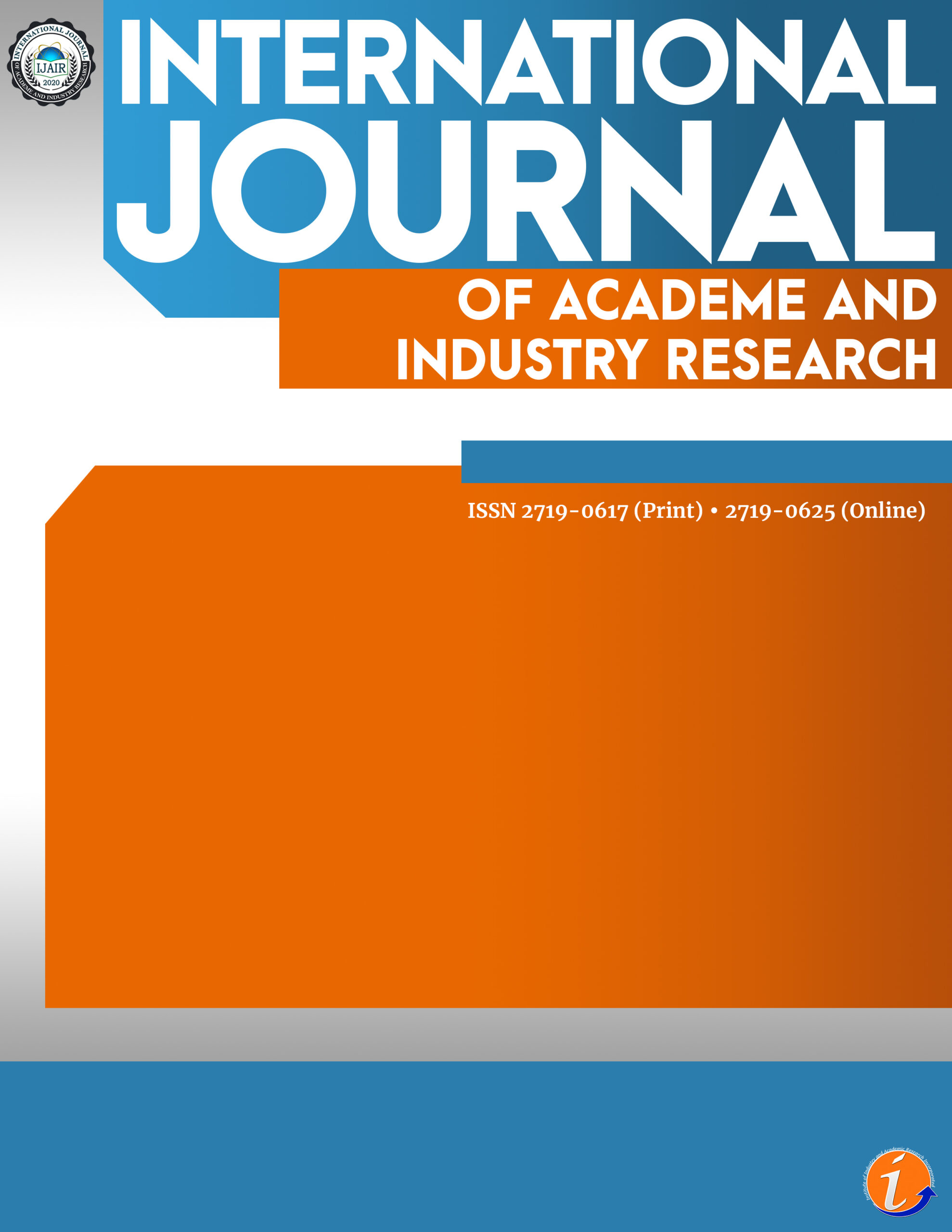The study determined the relationship between organizational dynamics and stewardship in promoting innovative work behavior and commitment at work. The descriptive-correlational research design was used, and statistical tools such as Pearson r correlational analysis were utilized to test the relationship between the independent and dependent variables. The hypotheses testing revealed significant relationship between teachers’ innovative work behavior and principals’ organizational dynamics and stewardship. In addition, there is significant relationship between teachers’ work commitment and principals’ organizational dynamics and stewardship. Furthermore, organizational dynamics is highly practiced in schools in terms of cognitive, social, personal, and technological imperative. Similarly, stewardship in the organization regarding relational, contextual, and motivational support is highly manifested by the respondents. The work commitment regarding job involvement, work ethic, and commitment to profession/career is also highly practiced. Based on the findings, the school organizations may organize a training, seminar and team-building activities that promotes camaraderie among colleagues.
organizational dynamics, stewardship, innovative work behavior, work commitment
Joel M. Arceo. Corresponding Author. Teacher II, Pangao Integrated School – Lipa City
Elisa N. Chua. Associate Professor V, Laguna State Polytechnic University- San Pablo City Campus
Antonakis, J., & Day, D. V. (2017). The Nature of Leadership. Sage Publications.
Beauchamp, G., Hulme, M., Clarke, L., Hamilton, L., & Harvey, J. A. (2021). ‘People miss people’: A study of school leadership and management in the four nations of the United Kingdom in the early stage of the COVID-19 pandemic. Educational Management Administration & Leadership, 49(3), 375-392.
Beheshtifar, M., & Kamani-Fard, F. B. (2013). Organizational creativity: A substantial factor to growth. International journal of academic research in business and social sciences, 3(3), 98.
Bhandari, P. (2020) An Introduction to Quantitative Research.
Fitriati, R. (2014). Applying interactive planning on leadership in the organization: the case of transforming public transport services in Banjarmasin. Procedia-social and behavioral sciences, 115, 283-295.
Gitman, L. J., McDaniel, C., & Shah, A. (2018). Introduction to Business. 12th Media Services.
Hallinger, P., & Lee, M. (2013). Exploring principal capacity to lead reform of teaching and learning quality in Thailand. International Journal of Educational Development, 33(4), 305-315.
Hernandez, M. (2008). Promoting stewardship behavior in organizations: A leadership model. Journal of business ethics, 80(1), 121-128.
Janssen, O. (2000). Job demands, perceptions of effort‐reward fairness and innovative work behaviour. Journal of Occupational and organizational psychology, 73(3), 287-302.
Johari, A., Abdul Wahat, N. W., & Zaremohzzabieh, Z. (2021). Innovative Work Behavior among Teachers in Malaysia: The Effects of Teamwork, Principal Support and Humor. Asian Journal of University Education, 17(2), 72. https://doi.org/10.24191/ajue.v17i2.13387
Kamble, Shanmukh & Dalbert, Claudia. (2011). Belief in a just world and well-being in Indian schools. International journal of psychology: Journal international de Psychologie. 47. 269-78. 10.1080/00207594.2011.626047.
Kawiana, I. G. P., Dewi, L. K. C., Hartati, P. S., Setini, M., & Asih, D. (2021). Effects of Leadership and Psychological Climate on Organizational Commitment in the Digitization Era. The Journal of Asian Finance, Economics and Business, 8(1), 1051–1062.
Keskes, I., Sallan, J. M., Simo, P., & Fernandez, V. (2018). Transformational leadership and organizational commitment: Mediating role of leader member exchange. Journal of Management Development, 37(3), 271-284. https://doi.org/10.1108/JMD-04- 2017-0132
Korn, P. (2016). Stewardship as a Construct for Leadership. Academia.Edu. Retrieved January 30, 2022, from https://www.academia.edu/
Korzilius, H., Bücker, J. J., & Beerlage, S. (2017). Multiculturalism and innovative work behavior: The mediating role of cultural intelligence. International Journal of Intercultural Relations, 56, 13-24.
Lyon, T. P., & Maxwell, J. W. (2020). Corporate social responsibility and the environment: A theoretical perspective.
Macias, J. M. (2020). The Relationship Between the Perceived Authentic Leadership of Principals and Teacher Burnout (Doctoral dissertation, Our Lady of the Lake University).
Nellitawati, N. (2018). Motivation and innovation role of school’s principal in improving teacher professionalism. COUNS-EDU: The International Journal of Counseling and Education, 3(2), 48-56.
Palmer, T. (2020). The importance of work commitment. Croner-i. Retrieved January 21, 2022, from https://app.croneri.co.uk/
Redmond, B. F., & Alderton, M. A. (2016). Work and organizational commitment – psych 484: Work attitudes and job motivation. Confluence. Retrieved January 30, 2022, from https://wikispaces.psu.edu/
Republic Act 9155. (2001). An Act Instituting a Framework of Governance of Basic Education, Establishing Authority and Accountability, Renaming the Department of Education, Culture and Sports to Department of Education.
Tobin, J. (2014). Management and Leadership Issues for School Building Leaders. International Journal of Educational Leadership Preparation, 9(1), n1.
Turkkahraman, M. (2015). Education, Teaching and School as A Social Organization. Procedia -Social and Behavioral Sciences. 186. 381-387.10.1016/j.sbspro.2015.04.044.
VanBenschoten, B. (2020b). What Is Servant Leadership and How to Apply It. NSLS. https://www.nsls.org/blog/what-is-servant-leadership-and-how-to-apply-it
Von Fischer, P., & De Jong, D. (2017). The relationship between teacher perception of principal servant leadership behavior and teacher job satisfaction. Servant Leadership: Theory & Practice, 4(2), 14.
Wang, J. C. K., Ng, B. L., Liu, W. C., & Ryan, R. M. (2016). Can being autonomy supportive in teaching improve students’ self-regulation and performance? In Building autonomous learners (pp. 227-243). Springer, Singapore.
Ylimaki, R. M. (2012) Curriculum Leadership in a Conservative Era. Educational Administration, Quarterly 48, No. (2) 304-346.
Zaccaro, S. J., & Klimoski, R. (2002). The interface of leadership and team processes.
Zeng, J., & Xu, G. (2020). How servant leadership motivates innovative behavior: A moderated mediation model. International Journal of Environmental Research and Public Health, 17(13), 4753.
Cite this article:
Arceo, J.M. & Chua, E.N. (2022). Organizational dynamics and stewardship in promoting innovative work behavior and commitment at work. International Journal of Academe and Industry Research, 3(3), 65-86. https://doi.org/10.53378/352917
License:
![]()
This work is licensed under a Creative Commons Attribution (CC BY 4.0) International License.










